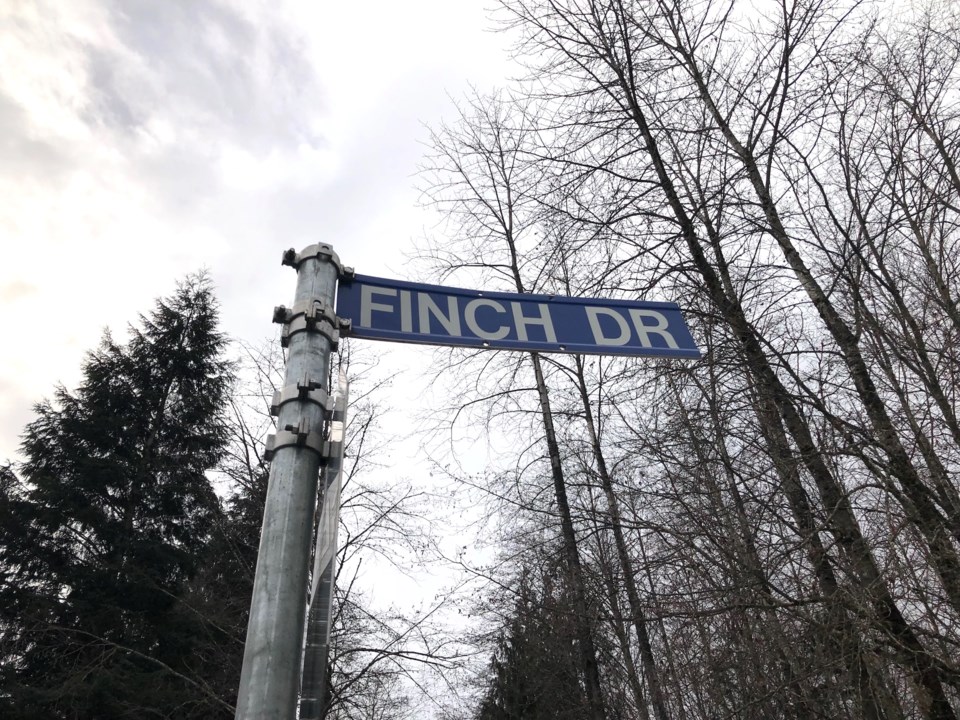The Oil and Gas Appeal Tribunal denied a stay application from a Squamish landowner about the removal of a stretch of old pipeline and a new pipeline, which will partially be located on her property.
Fortis BC is currently planning for the upcoming Eagle Mountain – Woodfibre Gas Pipeline Project, which will run down Finch Drive.
A stay means to stop or put a hold on a legal proceeding.
The resident, Linnea Voss, asked the tribunal to halt the FortisBC permit received from the Oil and Gas Commission — which allows FortisBC to deactivate part of the existing pipeline on the Finch Road property and install a new pipeline — until some concerns were answered. The appeal went before the tribunal in late September 2022.
It was published later on CanLII, the Canadian Legal Information Institute, a non-profit organization that has a mandate to provide more public access to legal decisions.
The pipeline work is anticipated to start around June and to be completed in or about April 2024, according to the stay of application decision.
Voss’s appeal argued there was a lack of communication about the project.
FortisBC said it sent a letter to Voss on Sept. 23, 2021, which provided notice of the proposed amendment, but no response was received from the landowner.
Voss said she did not receive that letter. “I do not have a copy of that. I have never signed anything with Fortis. I have not spoken to a Fortis representative in over a year. I was under the impression that this project may not go ahead,” the decision states.
The landowner also argued there were unclear expectations about the leftover pipeline, lack of a forest fire plan or evacuation plan for the household, a lack of archaeological assessment plus information on the duration of the project, and issues about the use of their property.
Both FortisBC and the Oil and Gas Commission opposed the application for the stay.
After the application was filed, FortisBC sent a document to Voss that included a financial offer but Voss said the offer was insufficient.
The tribunal denied the stay application.
“I conclude that the balance of convenience weighs in favour of denying a stay of the amended permit,” wrote the chair of the tribunal, Darrell Le Houillier.
The tribunal wrote that an archaeological assessment was conducted by the Oil and Gas Commission prior to approving the permit and emergency plans are required to be given to households or properties within emergency planning zones.
The tribunal also noted that a stay application was an “extraordinary” solution in this circumstance.
“I find that the applicant has provided insufficient evidence for me to conclude that denying a stay is likely to result [in] irreparable harm to her interests,” wrote Le Houillier.
“The legal test for a stay requires the applicant to provide evidence that her interests will likely suffer irreparable harm if a stay is denied,” he continued. “The applicant has the onus to provide evidence that justifies granting such an extraordinary remedy, and I find that she has not done so.”
Finally, regarding compensation to Voss from FortisBC and use of property, Le Houillier wrote, “The applicant’s concerns about Fortis entering onto and using the property, and the adequacy of the associated financial compensation, are not matters that the tribunal has jurisdiction to decide.”
Le Houillier wrote the amended permit given to FortisBC does not authorize them to use private land or property and such use must be authorized through a surface lease with the landowner or an order from the Surface Rights Board. That board has the authority to decide the permitted use of the property by FortisBC and compensation to the landowner.
As such, Le Houillier concluded that these concerns the tribunal could consider when deciding to deny this particular appeal.






